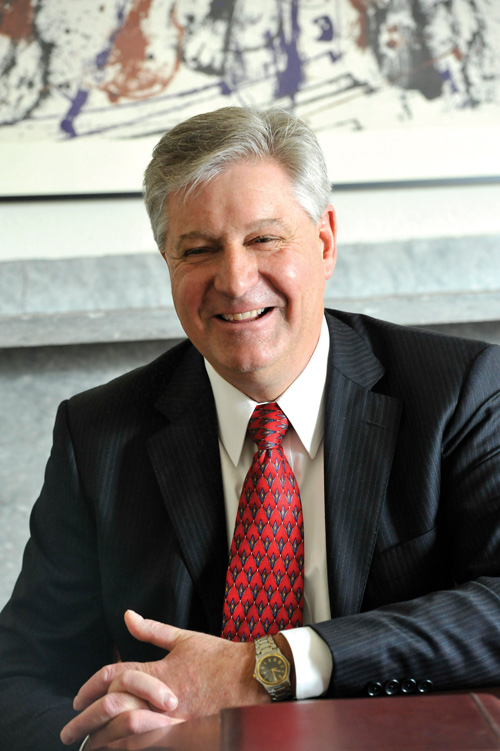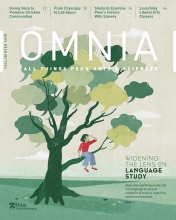Where Innovation Leads
At institutions like Penn, innovation is our daily business. It’s hard to imagine anything more fundamentally innovative than the pursuit of new knowledge, whether it involves humanists using technology to recreate and understand lost cultures, or scientists making observations that are uncovering the physics of the big bang.
What might be less obvious is how seamlessly these habits of mind that drive innovation in scholarship flow directly into the classroom. Our faculty are constantly engaged in conversations to push the frontiers of teaching, redefine best practices, and deliver a liberal education that responds to the challenges of the 21st century. This ongoing process of innovation is reflected in a range of initiatives from recent years, from updates to the curriculum; to new approaches to classroom teaching such as SAIL (structured, active in-class learning) courses, where class time is focused on interaction and problem solving; to interdisciplinary initiatives like the Integrated Studies Program, which introduces College freshmen to broad questions in the liberal arts, to name just a few.
The desire to innovate in teaching at Penn Arts and Sciences has also been demonstrated through 20 years of exploration of the potential of online learning. This process of experimentation paved the way for a major innovation in the School’s College of Liberal and Professional Studies, which we are launching this fall: an online degree program for adult, non-traditional students. The new Bachelor of Applied Arts and Sciences (BAAS) degree represents a first for Penn and a first in the Ivy League, bringing an undergraduate education to many students who would otherwise be unable to pursue liberal arts study at Penn. This option places us at the forefront in creatively meeting the expanding need for adult education in the liberal arts.
The process of innovation also continues in our classrooms on campus. This year, we’re working to advance excellence in teaching through a range of new initiatives. Faculty are currently engaging in broad discussions of pedagogy, considering such areas as core competencies associated with undergraduate majors and metrics that can be used to evaluate graduate groups. We are planning a teachers-in-residence program, which would engage a cohort of faculty across disciplines to build a community of learning. Work also continues to enhance mentoring of junior faculty, including creating ways for them to learn from senior faculty who excel in teaching. In addition, a pilot program involving departments from the humanities, natural sciences, and social sciences is exploring new, more nuanced ways to evaluate teaching, beyond the traditional student evaluations. Proposed methods will be identified and tested in the coming year.
These are just a few examples of how the spirit and habits of innovation that define the liberal arts are evolving the way we teach. I expect these new initiatives to lead in exciting new directions and to enhance the educational experiences of our undergraduates and graduate students, as well as students who come to Penn Arts and Sciences at all points in their lives, for generations to come.




